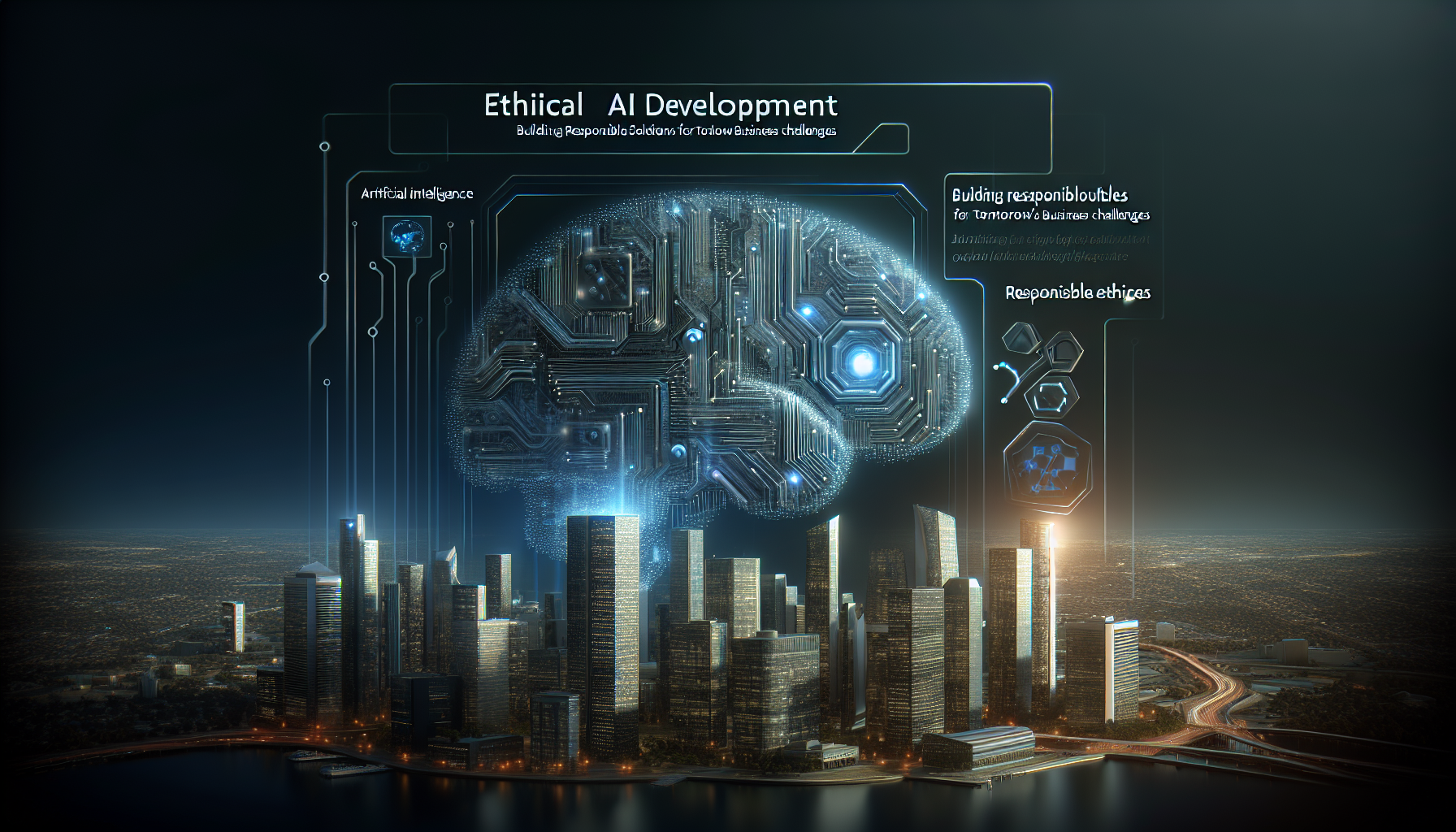Ethical AI Development: Building Responsible Solutions for Tomorrow's Business Challenges
As artificial intelligence (AI) becomes increasingly pervasive across industries, businesses must integrate ethical principles and responsible practices throughout the AI lifecycle to ensure sustainable, trustworthy solutions. Ethical AI development is no longer a nice-to-have, but a fundamental requirement for organizations seeking to harness AI while navigating complex social, regulatory, and reputational landscapes.
Key Principles of Ethical and Responsible AI
Leading frameworks and expert consensus highlight four core principles for responsible AI development:
Fairness
AI systems must be designed and monitored to prevent bias and discriminatory outcomes. This includes careful examination of training data for representativeness and ongoing mitigation of unfair impacts across diverse user groups.
Privacy
Protecting individual privacy is paramount. Responsible AI development mandates strict data protection measures, secure data processing, and transparency about how user data is utilized.
Safety and Security
AI solutions must be robust against misuse or attacks, with strong safeguards to ensure reliability and prevent harm. Rigorous testing, ongoing monitoring, and rapid response to vulnerabilities are essential.
Transparency and Explainability
Businesses must strive for transparency in how AI decisions are made and be able to explain AI-driven outcomes to users and stakeholders. The appropriate level of transparency should reflect the context and potential impact of each AI system.
Best Practices for Implementing Ethical AI
To operationalize these principles, businesses should:
Integrate Ethics from the Start
Embed ethical considerations at the earliest design stages, ensuring that AI solutions are aligned with organizational values and societal norms.
Monitor and Audit Continuously
Use dashboards and monitoring tools to track AI system performance, error rates, and user feedback. Regular audits help identify biases, data issues, and emerging risks, allowing for timely intervention.
Ensure Accessibility and Inclusivity
Design AI tools that are accessible to users of all abilities, offering alternatives for those unable or unwilling to engage directly with AI features.
Comply with Evolving Regulations
Stay updated on laws such as the EU AI Act and adapt AI systems to meet new regulatory and ethical standards.
Communicate Limitations
Clearly explain the capabilities and limitations of AI models to avoid overreliance, manage expectations, and foster trust among users and stakeholders.
Foster a Culture of Responsibility
Promote ongoing ethical education and establish governance structures (such as AI ethics committees) to oversee responsible AI development and deployment.
AI Governance: The Foundation of Ethical AI
AI governance encompasses the policies, processes, and organizational roles required to ensure that AI systems operate ethically and in alignment with business objectives and societal expectations. Effective AI governance involves:
- Setting clear ethical standards and accountability frameworks
- Ensuring transparency in decision-making and data usage
- Engaging stakeholders, including employees, customers, and regulators, in the development and oversight process
Conclusion
Building responsible AI solutions is a continuous, multidisciplinary effort that requires businesses to balance innovation with ethical considerations. By adhering to established principles—fairness, privacy, safety, and transparency—and embedding governance at every stage, organizations can create AI systems that address tomorrow’s business challenges while upholding public trust and social responsibility.
As you continue to explore the possibilities of AI, consider how automated customer service examples can help you build more efficient and responsible solutions. Additionally, Demystifying GPT Models: Leveraging Advanced AI for Business Innovation provides valuable insights into the potential of AI for business innovation.

